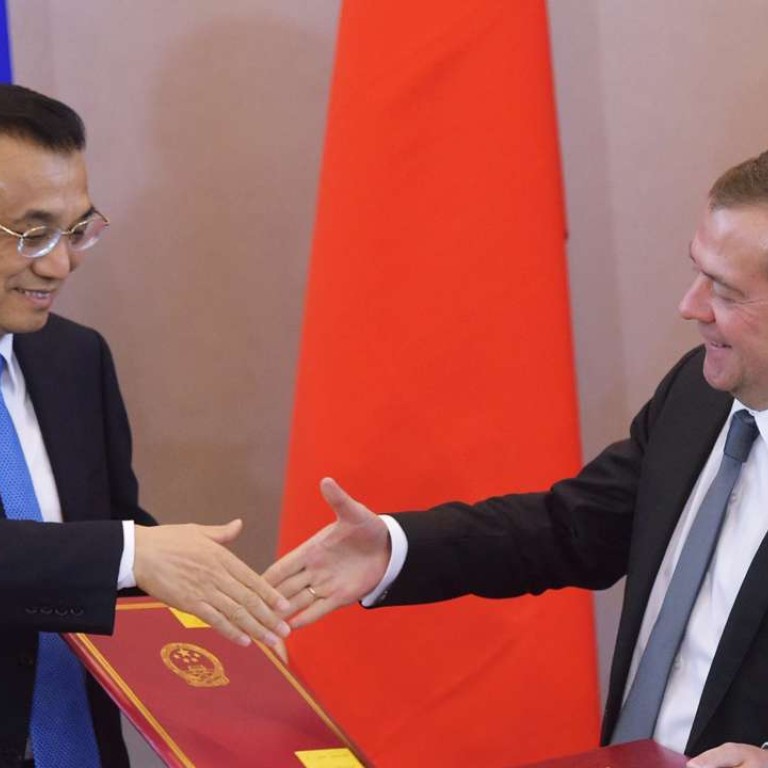
China and Russia draw closer with raft of deals covering nuclear power, energy and border co-operation
But analysts warn that amid economic challenges on both sides, implementation remained the true test of progress
China and Russia agreed to step up cooperation on nuclear energy and border development during an official visit by Premier Li Keqiang.
But analysts tempered their enthusiasm for the deals by saying the significance would depend on the speed of implementation.
Li arrived in St Petersburg on Sunday for a four-day official visit and met Russian Prime Minister Dmitry Medvedev on Monday, and Russian President Vladimir Putin on Tuesday.
“In the context of fragile world economic recovery and slowing global trade growth, China and Russia should further give full play to their complementary advantages, so as to add new vitality into each other’s development, revitalisation, and economic transformation and upgrade,” Li said.
The two sides signed agreements spanning trade, energy, military and technical cooperation, as well as construction of nuclear power plants.
Russia would construct new plants in China, with the first scheduled to begin operation by 2018, according to a statement by the Rosatom State Atomic Energy Corporation. The two sides would develop floating nuclear power facilities and “fast-neutron” reactors, a fourth-generation technology, TASS news agency reported. The two sides expanded cooperation over energy, with Gazprom and Rosneft signing deals with their Chinese counterparts.

China and Russia will also establish a joint commission to coordinate development in Russia’s Far East and Baikal region and northeast China. China and Russia would also expand transport ties, cross-border infrastructure and logistics, within the framework of the “One Belt, One Road” initiative and the Eurasian Economic Union, according to the communiqué.
China and Russia have stepped up cooperation in the energy industry but actual progress in implementation is very slow
But experts remained cautious over the significance of the raft of deals, saying the test would come with implementation. “Economic cooperation between China and Russia has been bolstered for years and it’s now on a steady track,” said Tian Chunsheng, a Russian affairs expert at the Chinese Academy of Social Science.
“China and Russia have stepped up cooperation in the energy industry but actual progress in implementation is very slow.”
She added: “What we should now focus on is not how many new deals are signed, but how many deals can be really implemented, as China and Russia are facing many economic development challenges such as reducing overcapacity and economic restructuring.”
China is Russia’s biggest trading partner and an important source of foreign investment, while Russia is one of China’s main suppliers of energy and advanced technology. “Russia is of huge strategic importance to China for it’s an indispensable participant in China’s Silk Road economic belt. If China fails to get support from Russia, China’s economic initiatives would probably encounter problems,” said Yang Cheng, an expert on Russian affairs at East China Normal University.
Russia is the last stop of Li’s eight-day Eurasia trip.

